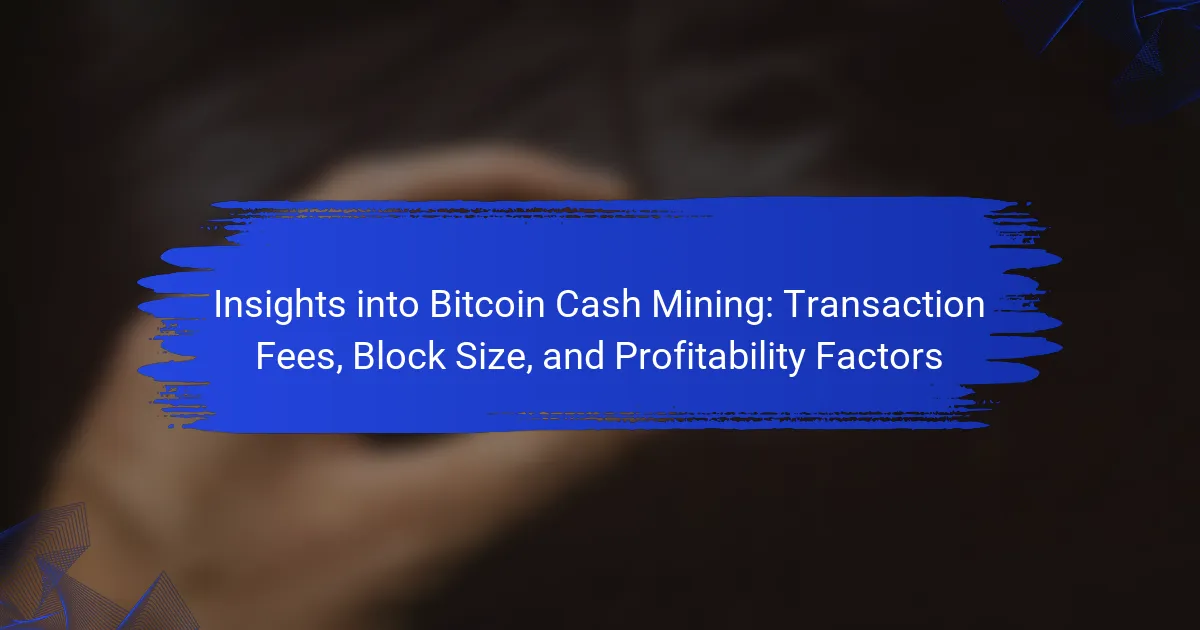Bitcoin Cash mining involves validating transactions and adding them to the Bitcoin Cash blockchain through the use of specialized hardware that solves complex mathematical problems. This process not only secures the network and ensures transaction integrity but also rewards successful miners with Bitcoin Cash and transaction fees. Key factors influencing Bitcoin Cash mining include block […]
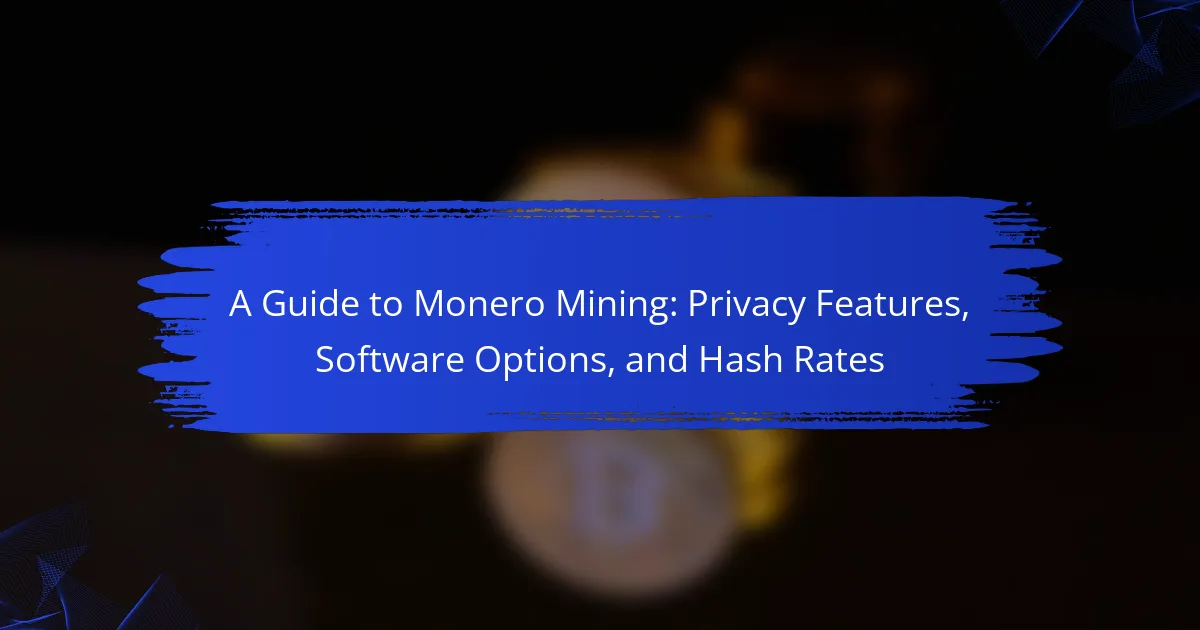
A Guide to Monero Mining: Privacy Features, Software Options, and Hash Rates
Monero mining is the process of validating transactions on the Monero blockchain, utilizing a proof-of-work algorithm called RandomX, which is ASIC-resistant and allows users to mine with standard hardware. Miners are rewarded with Monero (XMR) for adding new blocks, contributing to the network’s security and decentralization. The article covers essential aspects of Monero mining, including […]
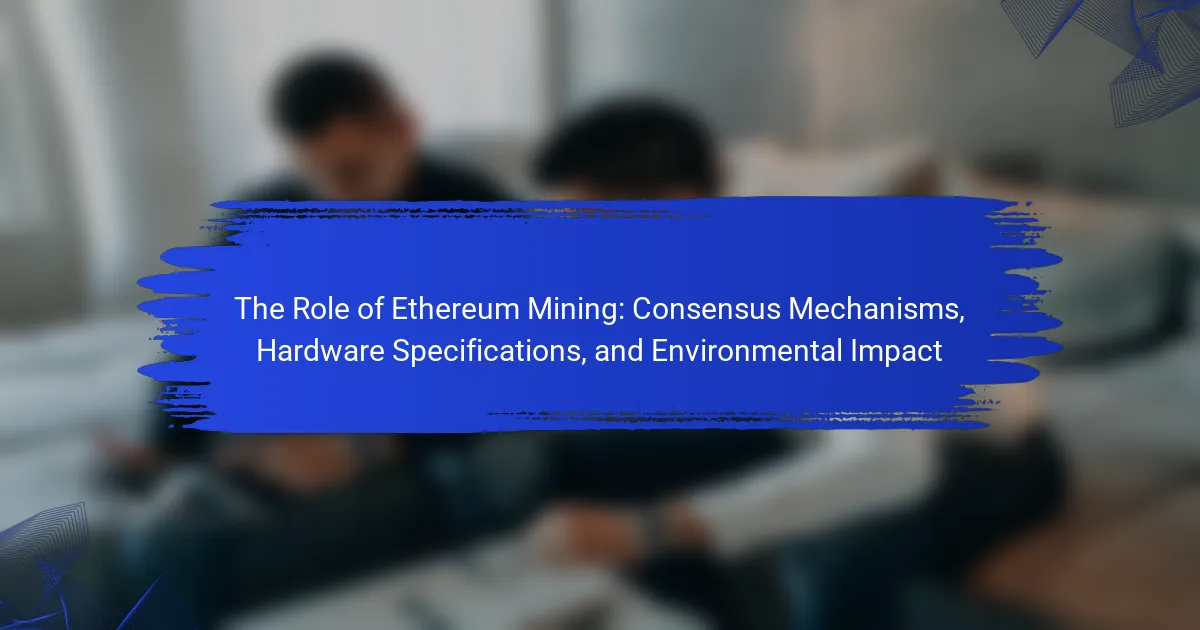
The Role of Ethereum Mining: Consensus Mechanisms, Hardware Specifications, and Environmental Impact
Ethereum mining is the process of validating transactions on the Ethereum blockchain through a consensus mechanism known as proof-of-work (PoW). Miners utilize powerful hardware, such as GPUs and ASICs, to solve complex mathematical problems, earning Ether as a reward while securing the network. As Ethereum transitions to a proof-of-stake (PoS) model with the Ethereum 2.0 […]
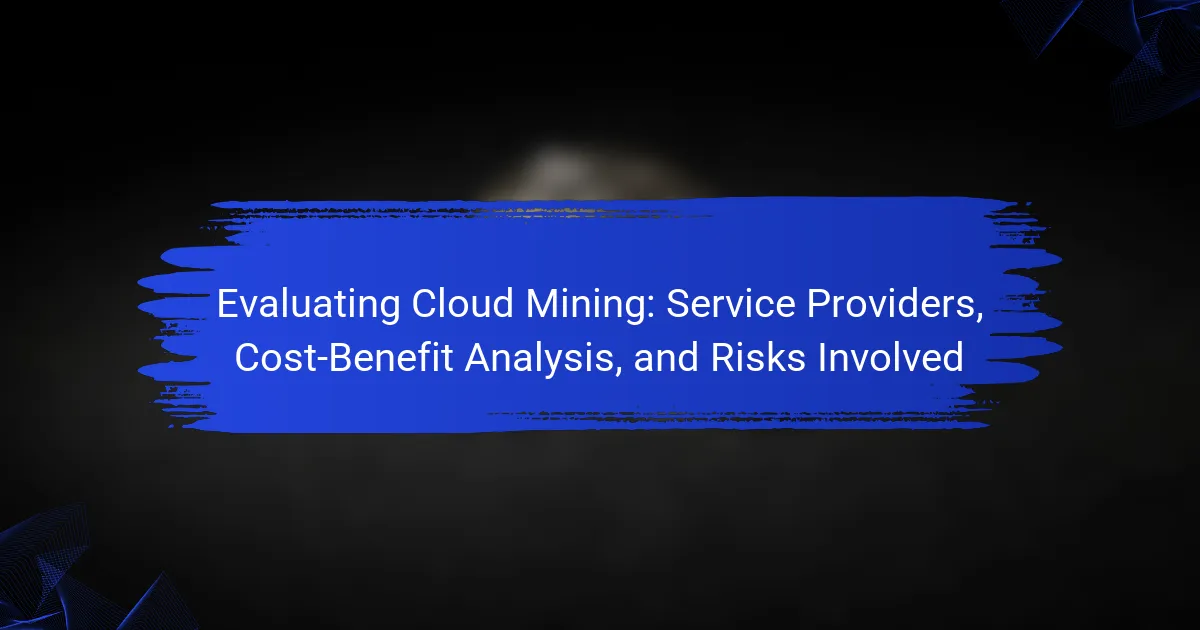
Evaluating Cloud Mining: Service Providers, Cost-Benefit Analysis, and Risks Involved
Cloud mining is a cryptocurrency mining method that leverages remote data centers, allowing users to rent mining power rather than invest in physical hardware. This article evaluates cloud mining by examining prominent service providers, such as Genesis Mining, Hashflare, and NiceHash, which are recognized for their reliability and user support. Additionally, it outlines a structured […]
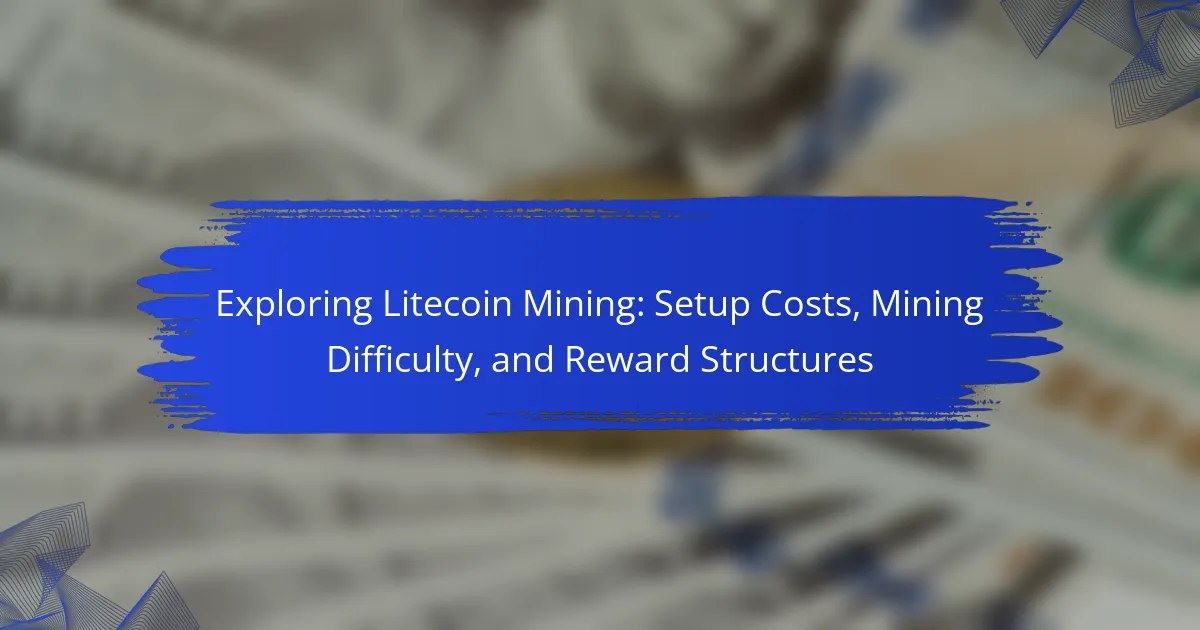
Exploring Litecoin Mining: Setup Costs, Mining Difficulty, and Reward Structures
Litecoin mining involves validating transactions on the Litecoin blockchain through a process where miners use computational power to solve complex mathematical problems. Successful miners earn rewards in the form of newly created Litecoins and transaction fees, contributing to network security and transaction integrity. The mining process utilizes a proof-of-work algorithm called Scrypt, which allows for […]

Navigating Altcoin Mining: Top Coins, Mining Algorithms, and Market Trends
Altcoin mining is the process of validating transactions and adding them to blockchains for cryptocurrencies other than Bitcoin. This article provides an overview of the top altcoins for mining, including Ethereum Classic, Monero, Ravencoin, and Litecoin, highlighting their unique mining algorithms such as Ethash, RandomX, KawPow, and Scrypt. It also discusses various mining algorithms like […]
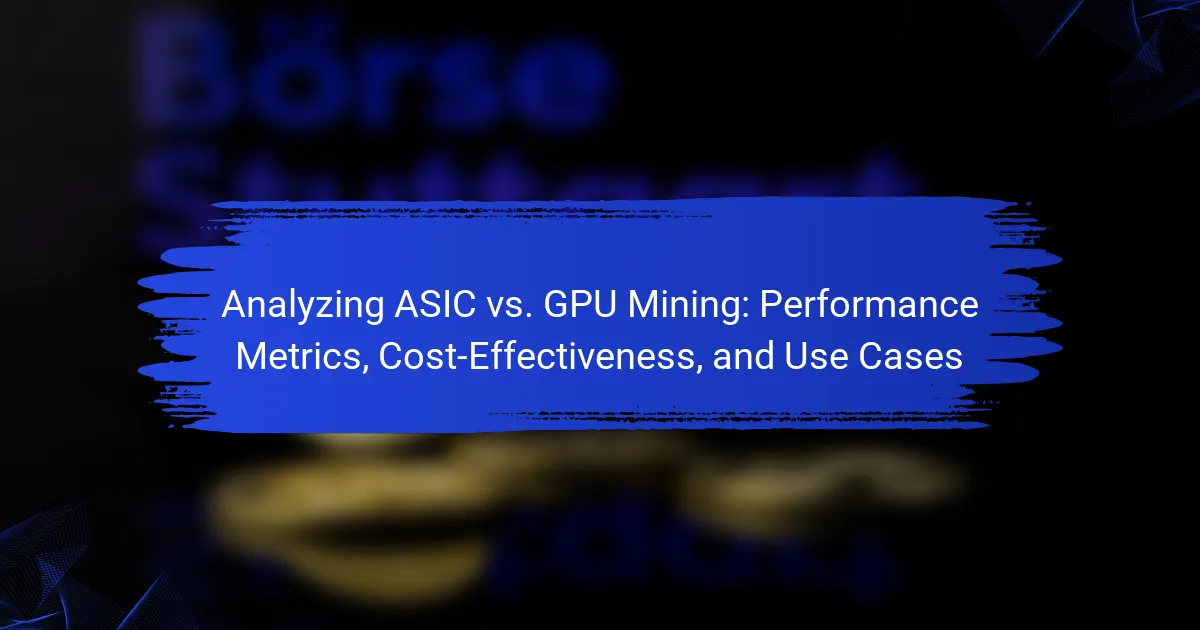
Analyzing ASIC vs. GPU Mining: Performance Metrics, Cost-Effectiveness, and Use Cases
ASIC mining involves the use of Application-Specific Integrated Circuits tailored for cryptocurrency mining, delivering high efficiency and performance for specific algorithms. In contrast, GPU mining utilizes Graphics Processing Units, offering versatility for mining various cryptocurrencies but generally with lower efficiency. This article analyzes the performance metrics, cost-effectiveness, and use cases of both mining methods, highlighting […]
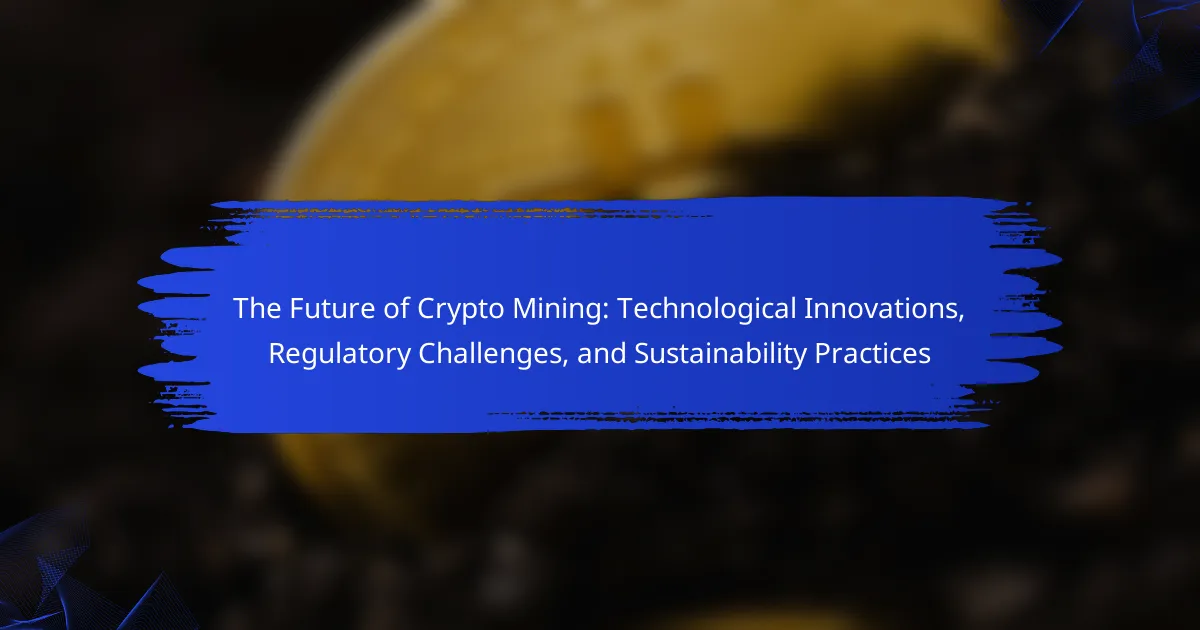
The Future of Crypto Mining: Technological Innovations, Regulatory Challenges, and Sustainability Practices
The article focuses on the future of crypto mining, highlighting advancements in technology, regulatory challenges, and sustainability practices. Technological innovations, such as energy-efficient ASIC miners, advanced algorithms, and cloud mining solutions, are enhancing the efficiency of mining operations while reducing energy consumption. Regulatory frameworks are evolving as governments implement stricter policies to address environmental concerns […]
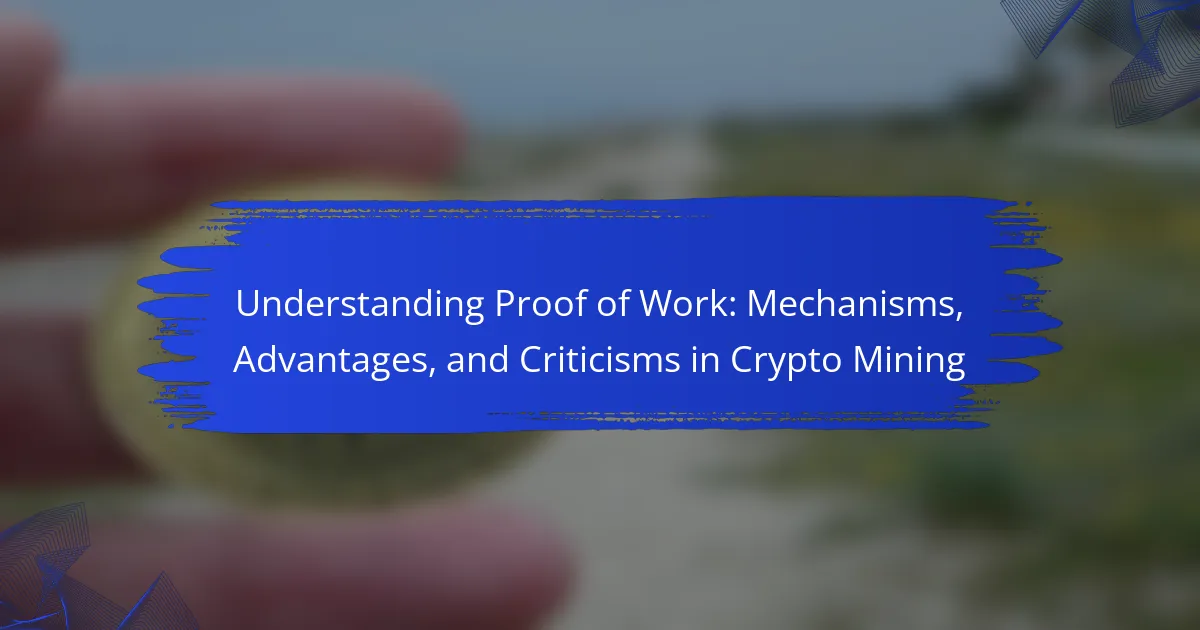
Understanding Proof of Work: Mechanisms, Advantages, and Criticisms in Crypto Mining
Proof of Work (PoW) is a consensus mechanism essential for validating transactions in cryptocurrency mining, notably utilized by Bitcoin. This process involves miners solving complex mathematical problems to secure the network against double-spending and fraudulent activities. While PoW enhances security and decentralization, it faces significant criticisms, including high energy consumption, potential centralization of mining power, […]
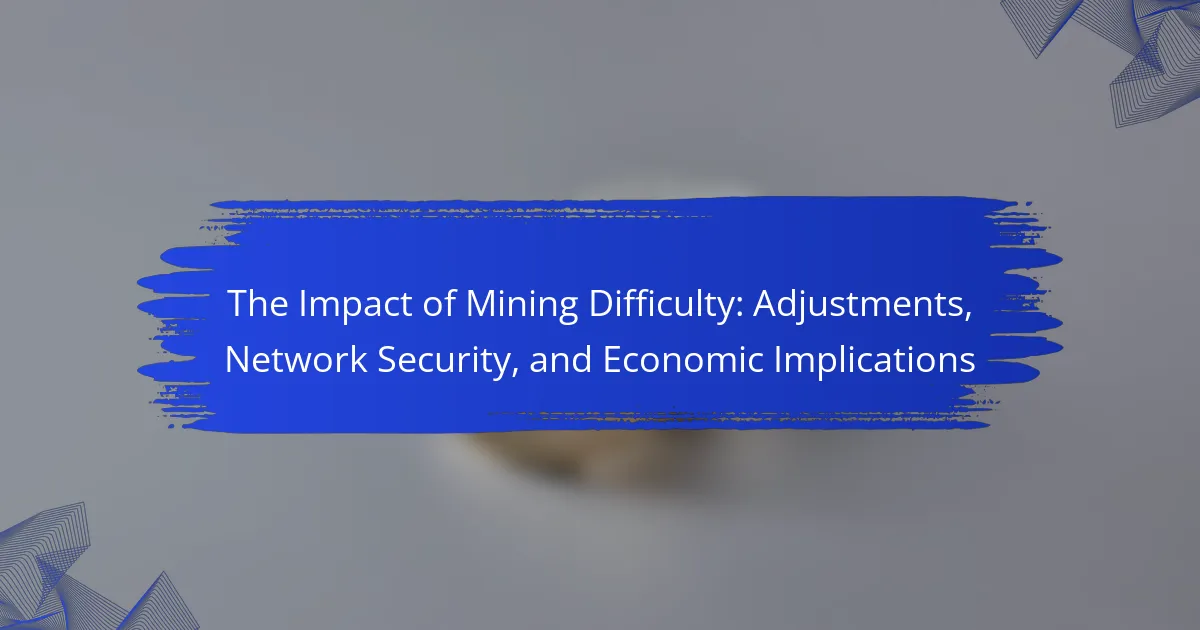
The Impact of Mining Difficulty: Adjustments, Network Security, and Economic Implications
Mining difficulty is a crucial measure that determines how challenging it is to find a new block in a blockchain network, particularly in Bitcoin, where it adjusts approximately every two weeks to maintain a consistent block time of around ten minutes. This parameter plays a significant role in ensuring network security and stability, as higher […]
